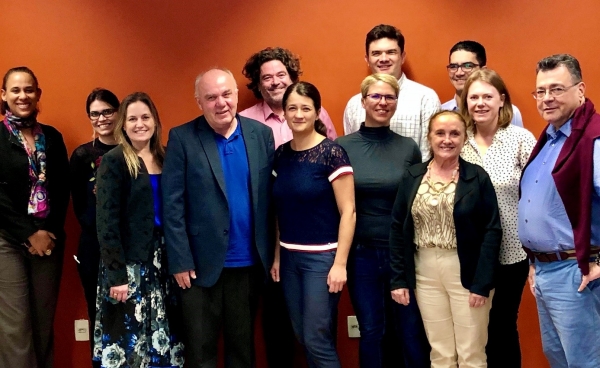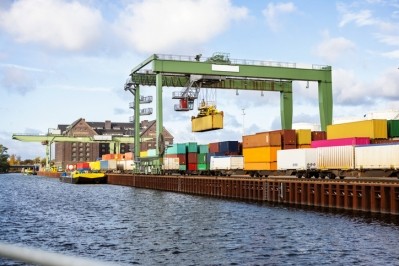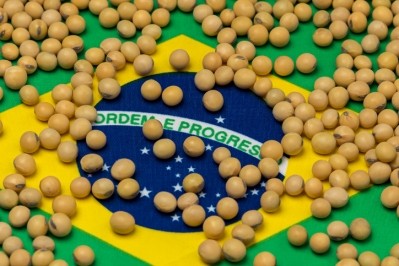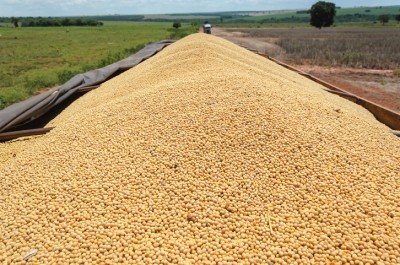Raising the bar at ProTerra: How to advance a sustainability standard to the next level

“A lot has changed in the last decade, sustainability is now firmly on industry’s agenda,” Emese van Maanen, managing director, ProTerra Foundation, told us as to the premise for change at the organization.
Created in 2006, based on the Basel Criteria on Responsible Soy, the ProTerra standard has a long-standing history and experience in promoting sustainability in the food and feed supply chain and segregated non-GMO materials. Among others, one of its aims is to secure the supply of sustainably produced, fully traceable, non-GMO ingredients for feed and food.
A report, produced by NGOs, Framtiden i våre hender (FIVH) and Rainforest Foundation Norway (RFN) in 2018, criticized the ProTerra standard, however, pointing to low levels of transparency compared to many other certification systems, lack of independence, vague environmental criteria, and weak criteria concerning pesticide use.
How has the standard evolved since then?
The MD acknowledged the need for improvement in the structure of the ProTerra organization, saying how there had been no long-term director in place since the ProTerra Foundation was set up in 2012.
The fact that the sustainability scheme began in 2006 as a private standard of a certification body, named CERT ID, was the connection that drew criticism previously, said van Maanen.
In order to address that, and with the increasing number of discussions taking hold in industry regarding soy compliance issues, transparency, and volumes, it was deemed as critical to have an independent standard. The Proterra Foundation, a non-profit, independent governance body for the ProTerra standard was thus set up, and founded in the Netherlands, she explained.
With a background in international sustainability and trade, and long involvement in soy networks, van Maanen joined the board of ProTerra five years ago and was invited to take on the role of MD in August 2019.
Governance
“For me, transparency and the decision-making process is very important,” she said in relation to what is driving the various projects at the Foundation she has led since.
In an effort to make the running of the standard more democratic, akin to the structure of an association where the members’ voice is heard, a stakeholder council was created whereby members of the Proterra Network were invited to join. “We have quarterly meetings and open discussions. It is a way to really involve members and get direct feedback. I am obliged to forward both positive and negative criticism to the ProTerra board of directors where we address issues as they arise. Two of those network members also have the possibility of joining the board for a period of three years.”
Another new organ within the Foundation, the certification and standard committee, also helps ensure greater transparency: “This is where we discuss standard update issues, any technical documents and protocols.”
“We also had the revision of the standard, which involved a lot of work.”
The latest version of the ProTerra Standard incorporates new criteria.
“We added a significant number of new core criteria related to land-use change, pesticide usage, water management, and biodiversity, and restructured the standard also.”
Companies are obliged to be aware about the pesticides disallowed in the country of destination, and follow suit; for example, Brazilian companies supplying the EU would not be able to use pesticides banned in Europe.
The ProTerra Foundation has been financially and legally independent since 2012. “The ProTerra Foundation is continuously improving and developing to address current and future needs. We have improved a lot in terms of governance. We have also been publishing consolidated results since 2018.”
She describes the Accountability Framework Initiative and the recently developed FEFAC soy sourcing guidelines (SSGs) as ground-breaking as they enable consensus-based principles, guidance, and definitions to help ensure effective action and clear accountability. “Beforehand we would be discussing definitions and concepts for months. Now definitions are accepted by major players.”
Dialogue to bring about change
The Norwegian dialogue that ProTerra started has been a huge success story, she said. It was prompted by that 2018 report by FIVH and Rainforest Foundation Norway.
“At the end of November 2019, we spent one week in Brazil with local soy crushers and exporters and the major importers from Norway and Scotland. We visited some soy farms and had discussions with NGOs and export associations and also, together, defined three major areas we wanted to work on. I think that is the key to success – bringing everyone to one table and focusing the discussion on the fundamentals. It really helps with understanding from the perspective of all parties. The Brazilians understood better what it is that the Europeans really need and the Europeans got insights, not skewed by media reports, about what the reality is in Brazil.”

The stakeholders involved in the group, Aquaculture Dialogue on Sustainable Soy Sourcing from Brazil, agreed to forge ahead on three projects – one focused on increasing of traceability on soy sourcing down to the municipality level, development of a code of conduct that exporters have to sign off on and the kickoff of a carbon footprint project.
That carbon footprint project was undertaken one month subsequent to that meeting, in December 2019. “The results were published on that at the end of last year.”
“LCAs and footprint measurements are a good way of showing improvements. We are going to continue that project, and hopefully we can get more direct contact and data this year, and carry out more farm visits as, last year, that was challenging.”
Networking
She said ProTerra’s relationships with NGOs, such as RFN, has improved tenfold since that report in 2018. Networks are crucial to enable accelerated transformation, she also argues.
“We are founding members of the Collaborative Soy Initiative and the Impact Alliance, which we established with colleagues in the beef and textiles industries, and I am actively participating in every major soy national initiative.
“Without collaboration you cannot improve anything; we need all supply chain stakeholders involved, and we see now that companies are more and more willing to collaborate.
“Non-GM or GM soy, everybody has the same goal of more sustainable, deforestation free supply chains, and if we can achieve that goal, we are happy to create that dialogue and bring players together.”
Working collaboratively as a group can produce great results, she said, as the recent zero deforestation pledge made by the soy protein concentrate (SPC) suppliers to the Norwegian salmon industry testified to.
As well as the stakeholders involved in the earlier Norwegian dialogue initiative, retailers like Tesco, Ahold Delhaize, Coop UK, Marks and Spencer, Metro, and Waitrose, along with processors like Aquascot and the Hilton Food Group, and salmon farmers such as Grieg Seafood, Lerøy Seafood Group, and Cermaq were part of that process, under the coalition, Aquaculture Dialogue on Sustainable Soy Sourcing from Brazil group.
Consultation across a range of stakeholders was also the byword for the successful development of the updated FEFAC SSGs, she stressed, with ProTerra taking an active role in that process.
But don’t we see more and more financiers, pension funds, and a range of investors types shifting away from soy produced in Brazil, regardless of the strides made in responsible production.
“There are a few bad apples that ruin it for everyone else. The majority do a great job. We have companies in ProTerra that have sustainability agendas, that have been certified from the beginning and they have made great improvements. That is why is it important to have active communication; as a group you are much stronger, and you can achieve more.
“I do believe that sustainability is all about change and moving away from a certain origin will just worsen the situation. We see a lot of European importers switching to other origins but there is land-use change in other countries, as well, even if the ecosystems are different. I do believe that, no matter what region or crop, sustainable production is possible and it comes down to education and applying good practices,” said van Maanen.
Volatility in supply
Volatility in non-GMO soy supply is another topic that is on her radar. ProTerra is running a webinar on this issue in the coming months. “There is a huge shortage in non-GMO soy supply this year – with almost 20% less non-GMO production in Brazil.”
That shortage is due to the volatility of the premiums and a lack of commitment, mid to long term, from the demand side to support the non-GMO market, stressed the ProTerra MD. A bad harvest in Ukraine, the key producing market in Europe, hasn’t helped.
“Sustainable production, in itself, needs more planning than unsustainable production, and non-GMO soy even more so as it is a niche product. Growers have to know in advance what volumes will be needed, who the buyers will be in terms of logistics, storage and seeds.”












